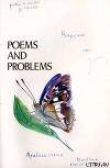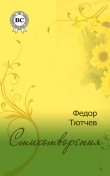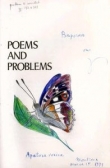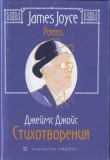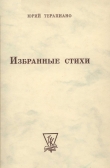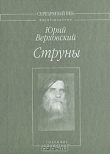A moongate in my wall: собрание стихотворений
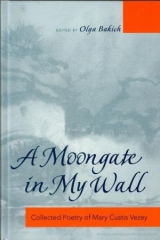
Текст книги "A moongate in my wall: собрание стихотворений"
Автор книги: Мария Визи
Жанр:
Поэзия
сообщить о нарушении
Текущая страница: 16 (всего у книги 19 страниц)
Published in the journal Kharbinskie kommercheskie uchilishcha Kit. Vost. zhel. dor., no. 9, 1969, p. 31, with a misprint in the poet's surname.
[Закрыть]
Небо над крышей
так сине, спокойно.
Ветка над крышей
качается стройно.
Птица на ветке
песню поет.
Колокол в небе
нежно зовет.
Боже мой! Жизнь
так проста и светла…
Мирные звуки
летят из села…
Что же ты сделал,
что плачешь над ней?
Что же ты сделал
с жизнью своей?
1930-е гг.
Russian into EnglishWith the notation «из сборника Время разлук (Нью-Йорк. 1971)».
[Закрыть]
Into her hollow tree, holding a nut,
scampers the squirrel. Swallows find their nest.
A tiny ant, crossing his well-worn rut,
hurries along the trunk to home and rest.
But I–I linger aimlessly along,
lie down and dream. The grass is warm and tall.
To say there's nowhere I can go is wrong,
but why I have to go – I don't recall.
[1970s]
No dates are available for Andreeva's life. This poem is from Rubezh, Harbin, no. 26, 1930; it received second prize in (he poetry competition organized by the Harbin literary circle of young poets «Churaevka» in the early 1930s
[Закрыть]
Here Jinna danced. Her face all glow's
the prettiest, she, indeed.
A golden ring is in her nose,
and a nut-shaped bead.
A live young lion Nagua laid
by her, but she looked not, for
she wanted earrings of varied shade
and elephant tusks galore.
Then came a white, beat Nagua's back
and gave Jinna beads instead.
She went with sidi, along his track,
«Nagua, coward», she said.
[1930s]
Black road of the garden upon the shore,
bright lanterns along the rim.
And I am so calm. Only never more
should anyone speak of him.
You're sweet and so faithful, and you and I
will kiss, like friends, as we go
our way, and the months will lightly fly
above us, like stars of snow.
20 Sept. [1920s]
Bright yellow is the twilight glow,
and tender is the April chill.
You should have come ten years ago,
but I am glad to see you still.
Come here, sit down, and nearer me,
and look at me with merrv stare.
This copy-book that's blue, you see,—
I wrote my childish poems there.
Forgive me that I lived in grief,
rejoiced not in the sun, and, too,
forgive, forgive my old belief
that scores who came before – were you.
[1930s]
In twilight shadows sloping
my road is stretched ahead.
Last night, still loving, hoping,
«Remember me», he said.
And now – but breezes blowing,
and cries of shepherds ring,
and shaken cedars, growing
beside the limpid spring.
21 Sept. [1930s]
None want to hear my songs now as of yore,
the days that were foretold have come to be.
My last, the world is wonderful no more
stop ringing, do not rend my heart in me.
But recently, you flew above the land
free as a swallow every morning gay
and now – а hungry beggar, you will stand
no gate will open, though you knock all day.
[1930s]
The pillow on either side
is hot, and burning low
the second candle has died,
while the crow
caws ever louder outside.
I haven't slept all night,
it's late to try in vain.
How unbearably white
the diapes on the white window-pane!
Good morning!
[1960s]
Не said I had no rivals, said that I
was not an earthly woman, but to him
the solace of a winter sun, the wild
song of our native country, like a hymn.
And when I die, I know he will not grieve
crying «Come back!» madly, as from a wrong,
but suddenly see – the body cannot live
without the sun, the soul – without a song.
And what of now?
[1960s]
Out of your memory I'll snatch this day,
so vou will question, lost, with helpless eyes,
«Where did I see the little wooden house,
the Persian lilac, swallows in the sky?»
The sudden longing of unnamed desires
oh, very often you will call to mind,
searching in pensive cities for a street
uncharted on whatever map you find.
Sight of some letter you did not expect —
sound of a voice at some half-opened gate —
and you'll be thinking, «Here she is herself,
coming to help me in my faithless state».
[1960s]
A steamer passes churning up a wake.
Familiar house with its cadran solaire.
Spires gleaming, and reflections of these waves—
nothing on all the Earth to me more fair!
A narrow alley darkens like a crack.
Sparrows alight upon a wire to rest.
Even the salty taste of many strolls
memorized long ago – is also blessed.
[1960s]
The muse walked away up the trail,
autumnal, narrow and steep.
Large dewdrops were sprinkled over
her dusky legs and feet.
I'd begged her to wait till winter,
to stay with through the fall.
But she answered, «This is a grave here,
How can you breathe at all?»
I wanted to give her a present —
the whitest dove I possessed —
but the bird flew off on its own
after my shapely guest.
I watched her go. I was silent.
She was my only love.
And like a gate to her country
The dawm was shining above.
[1960s]
Bent and blackened the logs of the bridge's span
and burdocks grow as tall as man
and, dense, the thickets of nettles sing
that they never will know a sickle's sting.
There's a sigh at the lake when evening falls
and wrinkled moss creeps over the walls.
That's where I greeted
my twenty-first spring.
To my lips the pungent honey
was the sweetest thing.
Dry branches shredded
that white silk dress of mine.
A nightingale sang on and on
in the crooked pine.
He would hear me calling
and would leave his lair,
gentler than a sister,
though wild as a bear.
I would swim across the rivulet,
run uphill, but oh,
later I would never say
«Leave me now, go».
18 Jan. 1966
Translation of the second stanza. Variant in the last line: «the very longest way!»
[Закрыть]
And you, my friends, you who are so few by now—
with every passing day you are more dear!
How very short the road has grown
and how it used to seem of all the longest way!
26 Nov. 1992
Variant in the eighth line in the manuscript: «with a tawny brown hand, and does not dare.»
[Закрыть]
Half a day of toil, and half of ease,
azure smoke above the Umbrian hills.
Short and sudden shower, cooling breeze,
loudly out-of-doors a chorus trills.
In the window – one whose dark eyes smile,
under Perugino's fresco, there,
tries to reach a basket for a while
with a sunburnt hand, and does not dare.
In it lies a note for eager glances:
«Questa sera… cloister of St. Francis…»
15 May [1928]
When winter goes – then you will see
my fields and fens that stretch away.
«What beauty!» you will say to me,
– «What lifeless slumber!» you will say.
But, child, remember, in the still
I kept my thoughts, and in that plain
I – restless, sorrowful, and ill —
Have waited for your soul in vain.
And in that dusk I guessed my fate,
stared into death's cold face, and long,
endlessly long I had to wait,
peering through mists that swam along.
But you passed by before my face,
– among the bogs my thoughts I kept
and in my soul a gloomy trace
of that strange lifeless beauty slept.
16 May [1928]
Mary Vezey's «(??)» in the eighth line presumably indicates a search for a better word.
[Закрыть]
We walked toward Lido once at dawn,
the rain was gentle, like a net.
Without replying you were gone.
And soon I slept beside the wet.
I heard the waves, their steady falling,
because my sleep was light, I heard
the sounds, that shook with passion, calling,
loving (??) the sorceress, – the bird.
And then the gull – a bird, a maiden, —
came down and floated on the sea,
upon the waves of song, love-laden,
with which you always dwell in me.
12 June [1928]
I've wakened often in the night
and peered at stairways darkness-filled.
The frosty moon threw silver light
upon my house, where all was stilled.
I've had no messages of late;
the city only brings me round
its noise, and every day I wait
for guests, and start at every sound.
And waked by steps that seemed to pass
at midnight more than once I rose
and in the window – saw the gas
that shimmered in the streets in rows!
Today – again I must await
my guests, and clench my hands, and fear.
I've had no messages of late,
knocks is all I hear.
12 June [1928]
I was confused and glad of heart,
your dark silk garments teased me sore.
The heavy curtain swung apart,
and voices hushed and spoke no more.
A gleaming ring – the footlights – trace
a wall of fire between us two,
the music burns your very face,
and brings a change in all of you.
And so again the candles light,
my soul alone is blind anew…
Your bared shoulders glisten bright,
the crowd of men is drunk with you…
Star, you have left this world of mire,
and far above the plain you stand…
You raise your hand – a silver lyre
is trembling in your outstretched hand.
[1928]
Who is the God to whom you pray?
Are you related in your flight
to dreams that come before the night
or anxiousness at break of day?
Or, joined to a star, are you —
yourself a goddess – with the rest
proud of an equal beauty too, —
with eyes devoid of interest
Looking from strange heights up there
down at the shadows touched with flame —
oh, queen of purity, of prayer
and earthly homage to your name?
[1928]
Above the restaurants, at twilight,
where drunken shouts and laughter ring,
the hot and putrid air is governed
bv the impurities of spring.
Above the dull suburban houses,
above the dust of narrow streets,
a gilded signboard faintly glitters,
and infant's distant cry repeats.
And every night, amidst the ditches,
their bowlers jauntily pushed back,
the city wits parade their ladies
in fields beyond the railway track.
Above the lake the squeak of oarlocks
mingles with women's muffled screams,
while in sky, surprised at nothing,
the stupid disk forever beams.
And nightly, in my glass reflected,
my solitary friend I see,
by this mysterious tangy potion
subdued and quieted, like me;
while next to us, at other tables,
waiters look sleepily about,
and drinkers, with their reddened eyelids,
«In vino veritas!» will shout.
And nightly, at the hour appointed
(or do I dream that she exists?)
a woman's form, in gleaming satins,
moves in the window through the mists.
And slowly walking past the drinkers,
without an escort, as before,
wafting a breath of mist and perfume,
she finds a seat beside the door.
The shining satin tight about her
of strange and ancient legend sings,
and so her hat, with mourning plumage,
and slender hand with many rings.
And caught within this sudden nearness,
I gaze beyond her somber veil,
and there enchanted shores discover,
a faraway enchanted trail.
With someone's secret I am trusted,
a sun is given me to keep.
Throughout the fissures of my soul
the tangy wine begins to seep.
Those ostrich feathers, dimly drooping,
rock in my brain forever more.
Blue eyes, so deep they have no bottom,
now blossom on a distant shore.
Within my heart there lies a treasure,
and I possess the key, alone!
You speak the truth, oh drunken monster:
«In vino veritas» – I own.
[1929]
Blok supplemented the published poem with a note: «Эпитафия сочинена Полицианом и вырезана на могильной плите в Сполотском соборе по повелению Лаврентия Великолепного». Fra Filippo Lippi (са. 1406–1469) was an Italian painter of the early Renaissance.
[Закрыть]
Here I am resting, Filippo, artist forever immortal,
the wonderful charm of my paint brush is on everyone's lips
into the paints I was able to breathe with my fingers a soul,
souls of the pious I could shake with the voice of the Lord.
Even Nature herself, looking at what I created
had to admit that I was artisan equal to her.
Here in this marble I was rested by Lawrence
Medici, ere I would be turned into lowliest dust.
23 May 1930
Variant in the fifth line of the second stanza in the manuscript: «could have you come to visit me».
[Закрыть]
In ringing streams my poems go,
weep, laugh and sorrow, quickly bound
before you, on,
and every one
weaves living strings, as on they flow
and do not know their banks around.
But through the crystals running by
you are as ever far from me…
The crystals sing along and cry…
How can I make your traits, that I
may have you come to visit me
from where en chanted countries lie?
[1960s]
From nowhere, like a fountain blue
a light flashed on.
We turn our heads up, I and you,
and it is gone,
above the blackness yonder, throwing
a golden mop,
and here – one more, in spirals going,
a ball, a top,
green, yellow, red and blue again —
all night aglow…
And, having wakened it in vain,
they go.
[1960s]
Андрей Блох (ок. 1896 – после 1930) Данные о поэте и переводчике крайне скудны: известно, что в начале 20-х годов он служил во французском Иностранном легионе; печатался во множестве периодических изданий (преимущественно выходивших в Латвии на русском языке между 1922 и 1930 годами). Автор двух поэтических сборников – «Стихотворения» (1927) и «Поэмы и стихи» (1929); оба изданы в Париже.
[Закрыть]
Far from the highways stretching round
a small forgotten town is found.
Its park is fresh, its church is old,
its sleep starts early, one is told.
A fountain and a tree are there
right in the middle of the square,
where often do a pig and kid
graze till the setting sun is hid.
And when at times a motor car
comes through the swelter from afar,
raising the dust, and hurries on,
and, like a soul that's doomed, is gone, —
all watch with sorrow for a spell
the stranger rushing straight to hell.
And later pray, when all is still,
for peace for him whose soul is ill.
[1930s]
I used to know and have forgotten lists
of ancient names and numbers half erased.
This world – who leads it in the dusky mists,
that some are lowered and the others raised?
And why have people suffered through the days,
and blindly sought, in vain, a better share?
Did hidden hands direct them on their ways?
Or was it chance that tossed them here and there?
And if it was that someone wished to send
the sound of mortal agonies to stand,
when will it be that He will put an end
to all, rem oving the relentless hand?
[1930s]
Poems are songs of a soul in its flight —
listen to them, passerby, in the night.
Poems are sparks of a soul that s aflame,
catch them, for heaven and they are the same.
Poems are tears of a soul that's a-smart —
take them, extinguish the fire of your heart.
Poems are secrets a soul has in store, —
Know them, rise up to them, sin nevermore.
[1930s]
She doesn't talk, and she is calm once more,
but joy will not return to her again:
the day dam p earth was thrown into his grave
– that day joy took leave of her for good.
She doesn't talk – and now her very soul
is empty, like a shrine above a grave,
where day and night burns an eternal flame
lighted above the silent sepulchre.
[1960s]
In one of my familiar dreams
there is a place that is so strange,
a stillness, where the sunlight beams
upon a peaceful mountain range.
Green stands a peak, and others crowd
as far away as eye can see,
while in the sky a silver cloud
patterns its fragile filigree.
And there upon the slope I stand,
but shall I triumph or deplore
that in this meditative land
I do not need you any more?
1957
We roam a waterless valley
– but are we asleep or awake?
The wind stirs the treetops above us
with its ragged hem in its wake.
Here once a stream was running,
but its source has long been dry.
Only the sting of the half-moon
and desert's fathomless sigh.
From grandfathers' fairytales
– there once was a source, we know.
But we can't recall, half-dreaming,
when? and where did it flow?
We are lost. We are searching for landmarks.
Our hearts in their last despair
are poorer than starving beggars
that stand in the city square.
5 Dec. 1967
From the collection Жемчуга (1910; 1918).
[Закрыть]
Flowers never live in my house,
but a minute they soothe the eye,
in a couple of days they die;
flowers never live in my house.
Birds either don't live here long,
only ruff their feathers and frown,
and by morning – a ball of down…
Even birds do not live here long.
Only volumes in eight long rows,
silent volumes of many pages,
guard the languorous thought of ages,
like teeth, in eight long rows.
The man who sold them to me,
I recall, was hunch-backed and poor…
…By the graveyard he kept his store,
did the man who sold them to me.
[1930s]
From the collection Жемчуга (1910; 1918).
[Закрыть]
Tonight you will be coming soon,
and I will understand
why all alone beneath the moon
it feels so strange to stand.
Pale, you will check your step, and throw
away your cape and hood,
does not the full moon likewise flow
above the somber wood?
And by the magic of her ways
and by yourself spell-bound,
I will be happy – with my days,
the dark and stillness round.
So in the woods a beast which smells
that spring is coming soon
the rustling of the hours tells
and goes to watch the moon.
And softly to the glen he creeps
to wake the dreams of night,
and with the moon's own movement keeps
his step, that's ever light.
Like he, I will be speechless too,
will look and lose my strength,
and guard the solem n seal of you,
o, Night, throughout your length!
There will be m any shining moons
within myself and near,
and pallid shores of ancient dunes,
alluring, will appear.
And from the darkness which unfurls
the ocean green that roars
will bring me flowers, corals, pearls
the gifts of distant shores.
And there will be a thousand sighs
of creatures dead and far,
and somber sleep of silent eyes,
and wine from every star.
Then you will go, and I will stay
to hear the moon's last tune,
and see the dawning of the sky
above the pallid dune.
[1930s]
Only the tired are worthy of praying to God,
only by lovers the meadows of spring may be trod!
Soft is the sorrow on earth and the stars in the sky,
softly resounded a «yes» – in the darkness to die.
This is submissiveness! Come and bend over me now,
pale maid, wearing the black mourning-veil on your brow!
Sad is my land, in the wilds of the marshes it lies,
no land could ever be fairer for sorrowful eyes.
Look at the brownish buds and the damp-grown glen,
they are what makes me renounce the pleasures of men.
Am I in love? Or just weary as never before?
Oh, it is good that my eyes do not shine any more!
Calmly I look at the wind-blown grass of the plain,
calmly I hear in the marshes a bittern complain.
[1930s]
Reader of books, I also tried to find
my heaven in the knowledge which obeys,
I always loved them, – strange ways that wind
where neither hope nor reminiscence stays.
Into new chapters eagerly to roam,
upon the stream of many lines to ride,
and watch the growing waves and splashing foam,
and listen to the roar of rising tide!
But after dusk.. how horrible the shade
behind the shelf and icon in the night,
and, like a moon that shimmers on the glade,
the pendulum – immovable and bright!
[1930s]
His eyes are hidden underground lakes,
forgotten kingly halls, with floors untrod,
upon his brow the highest shame makes
its mark, and he will never speak of God.
His lips – they are a purple wound that's made
by poisoned daggers. Early silent grown
and overcast with melancholy shade,
they ever summon to a joy unknown.
His hands are full-moon marble, they are such
on which damnation will forever last,
for they have crucified and used to touch
young sorceresses in the ages past
His fate is in the centuries that lapse
to be the dream of people who would slay,
and of the poets; at his birth, perhaps,
a bloody comet melted, far away.
Within his soul – age-old offences live,
within his soul unnamed sorrow's tarry,
his reminiscences he would not give
for all the flowers of Cyprid or of Mary.
His wrath is not a sacrilegious wrath,
and tender hue his silken cheeks maintain.
And he can smile, and he can also laugh,
but weep… he cannot ever weep again.
[1930s]
The eagle flew ahead and toward the height,
through starry gateways to the Powers' Throne,
and full of beauty was his kingly flight,
and in the sun his brown feathers shone.
Where had he lived? Perhaps it was a King
who kept him chained, a prisoner, till now,
and he had cried to greet the maiden-spring,
that loved a prince with melancholy brow.
Or maybe in a wizard's gloomy den
when he was looking out the narrow door
the height above enchanted him and then
turned to a sun what was a heart before.
What matters that? The perfect azure heights
unfolded, ever luring him ahead
and ever on he flew, three days and nights
till in his bliss he smothered and was dead.
(…)
Rays of the planets pierced the heavens through
magnificent, divinely frozen rays,
but, never knowing perish, on he flew
and watched those planets with a lifeless gaze.
And more than once worlds tumbled, making room
for more, and the archangel's trumpet came,
and yet alone the eagle's gorgeous tomb
did never fall a victim of the game.
16 July [1930]

